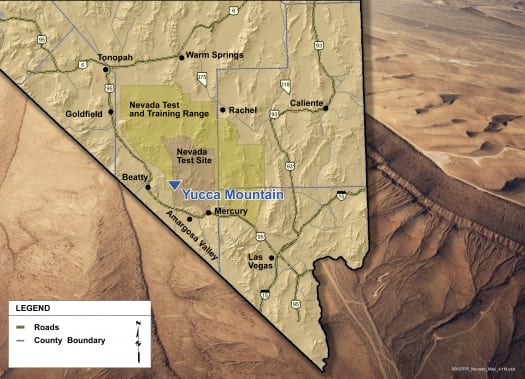
RadWaste Monitor Vol. 11 No. 26
Visit Archives | Return to Issue PDF
Visit Archives | Return to Issue PDF
RadWaste & Materials Monitor
Article 1 of 8
June 29, 2018
House and Senate Set for More Yucca Headbutting in Final 2019 Budget Negotiations

For the second year in a row, the House and Senate have set up a showdown over whether to fund the Donald Trump administration’s request to license a permanent nuclear-waste repository at Yucca Mountain in Nevada.
The Senate on Monday passed a so-called minibus…
Partner Content